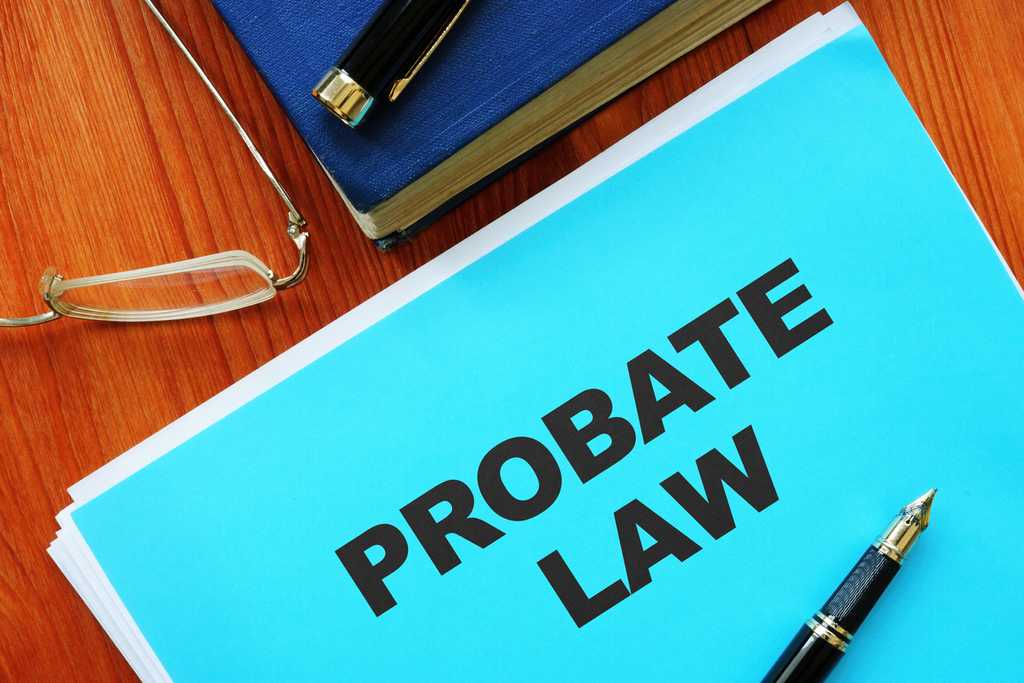Probate is a legal process that is often required to manage and allocate an estate after someone dies. This process typically plays out in the courts, and it is managed by the executor named in a person's will. If there is no will left behind, probate can be overseen by an administrator named by the court system.
There are definitely situations where probate is not required, and you may want to take steps to avoid probate in the future if you have the means to do so. Read on to learn how probate works, when this process takes place and why you might want to have an estate plan that lets your beneficiaries sidestep probate altogether.
What is Probate?
The word "probate" is used to describe the broad legal processes that take place after a person dies. Steps involved in the probate process can include:
- Proving the deceased person's will is valid (if a will was left behind)
- Formally notifying named beneficiaries in a person's will (if a will was left behind)
- Taking inventory of the deceased person's property and having it appraised
- Using the deceased person's remaining assets to pay debts and taxes
- Distributing remaining property of the deceased per terms in their will (or state law if there is no will)
While probate may be essential when someone passes away, costly lawyers and court fees are typically involved. That's part of the reason many people take steps to help their beneficiaries avoid probate on their estate before they die.
If probate can be avoided, more money goes directly to the person's heirs instead of attorneys and court costs.
How Does Probate Work?
During probate, the executor — or the person who is named to oversee a person's will — needs to perform certain essential tasks while documenting every step of the process.
Generally speaking, the process starts with the executor getting legal copies of the death certificate, which they can purchase through their local health department. This process alone may only take a few days, but it could also require several weeks or months if the person's death requires an autopsy or an investigation.
With a death certificate in hand, the executor of the will can file for probate with the court system. In some states, several probate procedures are offered, in which case the executor needs to choose the right one. Some states also require the witnesses who signed the will to appear in probate court, although other states allow self-proving affidavits that witnesses can sign. Either way, a judge will ultimately need to approve the executor of a will for the probate process to move forward.
At this point, the executor of the will needs to identify all the assets of the deceased, as well as taxes and debts they owe. Bills need to be paid with assets of the deceased, then remaining assets can be distributed to the beneficiaries of the will per its terms.
How Much Does Probate Cost?
According to Trust & Will, the cost of probate can be up to 10 percent of the estate. However, probate expenses can run significantly higher if lawyers are required for the process.
Probate fees are typically comprised of:
- Optional commissions paid to the executor
- Attorney fees
- Accountant fees
- Appraiser fees
- Court filing fees
- Executor bond fees
- Out-of-state probate fees (when required)
Do All Estates Go Through Probate?
Many people assume having a will automatically protects their estate from probate. However, this is not always the case. The reality is, estates over a certain value will need to go through probate regardless of whether a person dies with or without a will and testament.
With that being said, most states allow a spouse to claim the assets in an estate without probate. This means that, if you pass away while holding assets jointly with a spouse, those assets could automatically become their sole property.
You should also note that certain types of assets do not go through probate regardless. These include:
- Life insurance proceeds, which are paid to the policy's beneficiaries outside of the court system
- Assets in trust, which are paid out according to the rules of the trust
- Payable-on-death accounts, which are assigned to a beneficiary within that account
- Property that is deeded transfer-on-death, which can pass to your beneficiary with a recorded deed outside of the court system
Ways to Avoid Probate
Since probate can cost your heirs both money and time, you should try to help them avoid it if you can. Fortunately, there are some ways to avoid probate on your estate, which you can put in place long before you die:
Avoiding Probate On Small Estates
Most states recognize that probate may not be necessary on small estates with modest values. However, the threshold for having a small enough estate to avoid probate depends on where you live.
To find out if an estate is small enough to avoid probate in the deceased's state of residence, you'll want to start by adding up their assets that aren't co-owned with someone else. From there, you should research state probate laws to find out if the value of the assets is low enough to avoid probate in their state or municipality.
Create a Living Trust
According to LegalZoom, you can also avoid probate by creating a living trust, which is a type of alternative to a will. Where a traditional will is written to distribute your assets when you pass away, a living trust actually places those assets in a trust which is managed by a trustee you assign. Since the property and assets are already in the trust, your heirs can avoid probate altogether when you pass away.
While there are costs involved in writing a living trust, they can be much lower than the costs involved in probate. In that sense, a living trust can help you distribute your assets how you prefer while keeping expenses at a minimum.
Name Beneficiaries on Bank Accounts and Retirement Accounts
Those hoping to avoid probate should also know that adding beneficiaries to bank accounts and retirement accounts can help. These accounts, which can be considered payable on death, can include 401(k) plans, IRAs, stocks and bonds, pension plans and life insurance policies.
To expedite this process, all you have to do is request and fill out payable on death forms from your bank or the administrator of your accounts. Make sure to name and update beneficiaries on life insurance policies you have as well, and the proceeds can be easily claimed by your heirs without probate after you die.
How Do You Know if Probate is Necessary?
Having a will doesn't necessarily help you avoid probate, but there are certain situations where probate is not required. However, that doesn't mean the situation is always cut and dry, and there may be cases where it's hard to know what to do next.
If you're a named executor in a will or someone you love has passed away, it can help to reach out for legal advice before you decide whether to petition the court for probate or skip this sometimes costly and lengthy process. A probate attorney can help you figure out if probate is necessary, and if so, which remaining assets qualify.

